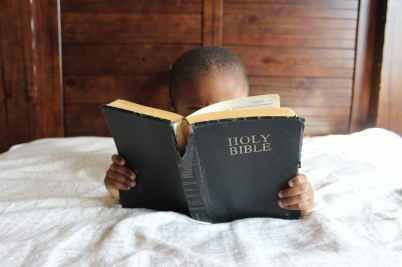Day 126 & 127—We have begun our FIFTH month of Bible reading. What insights have you gained about God and yourself through reading so far? Share in the comments section.
(Note: SUNDAY’s and MONDAY’s readings are combined.)
 Day 126 – Psalms 89, 96, 100, 101, 105, 132 (Psalms of Ethan, David, and others).
Day 126 – Psalms 89, 96, 100, 101, 105, 132 (Psalms of Ethan, David, and others).
.Psalm 89 is written by Ethan, one of the three leaders of music that David appointed in 1 Chronicles 6:42. It is a song of the Steadfast Love of the LORD.
“I will sing of the steadfast love (mercy) of the LORD, forever; with my mouth will I make know your faithfulness to all generations.” “Who in the skies can be compared to the LORD? Who among the heavenly beings is like the LORD.” “Who is mighty as you are, O LORD..?” “Blessed be the LORD forever! Amen and Amen.”
Psalm 96 is a psalm of Worship. “Oh sing to the LORD a new song; sing to the LORD, all the earth! Sing to the LORD, bless His name; tell of His salvation from day to day. Declare His glory among the nations, His marvelous works among all the peoples! For great is the LORD, and greatly to be praised…” “Ascribe to the LORD the glory due his name. Worship the LORD in the beauty of holiness! Say among the nations, ‘The LORD reigns!'”
These are admonitions that all of us who love the LORD should be doing.
Psalm 100 is another psalm that many who have attended church from an early age have memorized.
“Make a joyful noise to the LORD, all the earth!
Serve the LORD with gladness!
Know that the LORD, He is God!
It is He who made us, and we are his
We are his people and the sheep of his pasture.
Enter His gates with thanksgiving
and His courts with praise!
Give thanks to Him; bless His name!
For the LORD is good;
His steadfast love endures forever,
and His faithfulness to all generations.”
In Psalm 101, David praises the LORD and pledges his integrity to Him. “I will walk with integrity of heart within my house; I will not set before my eyes anything that is worthless.” “A perverse heart shall be far from me; I will know nothing of evil.”
It’s too bad David did not remember these vows in a few years when “his eyes” watched Bathsheba bathing and he perversely lusted for her and, in the end, killed her husband. But, alas, but for the grace of God, “there go I.”
Psalm 105, another song telling about God’s wonderful works, relates the history of Israel from Abraham until they reached Mt. Sinai, escaping Egypt.
“O, offspring of Abraham, children of Jacob, his chosen ones….” “Oh give thanks to the LORD; call upon His name; make known His deeds among the peoples! Sing to Him, sing praises to Him; tell of all His wondrous works! Glory in His holy name; Let the hearts of those who see the LORD rejoice! Seek the LORD and His strength; seek His presence continually! Remember the wondrous works that He has done….”
Again, words of admonition for us – how our hearts should always be toward God.
Psalm 132 calls the congregation to remember how David’s heart was for building a dwelling place, a resting place for the Ark, a house of worship for the LORD. God took notice of his heart’s desires. God told him Zion was where He desired to dwell among His people, bringing them salvation and joy. And for David’s heart desire, God would bless the house of David forever.
..
Day 127 – 2 Samuel 6-7. 1 Chronicles 17 – (The Ark to Zion, God’s covenant with David)
2 Samuel 6 is a repeat of 1 Chronicles 15, when King David brought the Ark of God into Jerusalem correctly, with the Levites carrying it on their shoulders.
This passage elaborates more on his wife, Michal’s attitude towards him as he rejoiced and celebrated the Ark’s arrival. “How the king of Israel “honored” himself today, uncovering himself today before the eyes of his servants, female servants, as one of the vulgar fellows shamelessly uncovers himself.” (King David was wearing a linen robe and ephod, so he was not exposed. Perhaps she thought he should have dressed in kingly robes as her father had.)
King David’s answer was terse. “It was before the LORD, who chose me above your father and above all his house, to appoint me as prince over Israel, the people of the LORD – and I will make merry before the LORD.”
The final sentence says, “And Michal, the daughter of Saul, had no child to the day of her death.”
2 Samuel 7 reveals King David’s heart for the LORD: “See now, I dwell in a house of cedar, but the Ark of God dwells in a tent.” He wanted to build a temple to glorify his God, but the LORD had other plans. But God was pleased with his heart and made a covenant with him.
“I will make for you a great name, like the name of the great ones of the earth.” “When your days are fulfilled, and you lie down with your fathers, I will raise up your offspring after you, who shall come from your body, and I will establish his kingdom. HE shall build a house for my name, and I will establish the throne of his kingdom forever.” “And your house and your kingdom shall be made sure forever before me. Your throne shall be established forever.”
David was so “wowed” by God’s words that he went in and sat before the LORD. “Who am I, O LORD GOD, and what is my house that you have brought me thus far? And yet this was a small thing in your eyes, O Lord GOD.” “Because of your promise and according to your own heart, you have brought about all this greatness, to make your servant know it.”
“Therefore you are great, O LORD God. For there is none like you, and there is no God besides you.” “And your name will be magnified forever, saying The LORD of hosts is God over Israel.”
1 Chronicles 17 repeats the LORD’s covenant with David. It is not for the king to build God a house but that the LORD would build David’s “house” forever. Then, David’s humble prayer of amazement, gratitude, and worship.
(The “Davidic Covenant” reaches far into history, with the lineage of Jesus, the Christ, being traced to this king of Israel. (See Matthew 1:1-17.) Further, the covenant points to when King Jesus, the Son of David, will reign and rule the whole earth. (See Revelation 11:15.)


